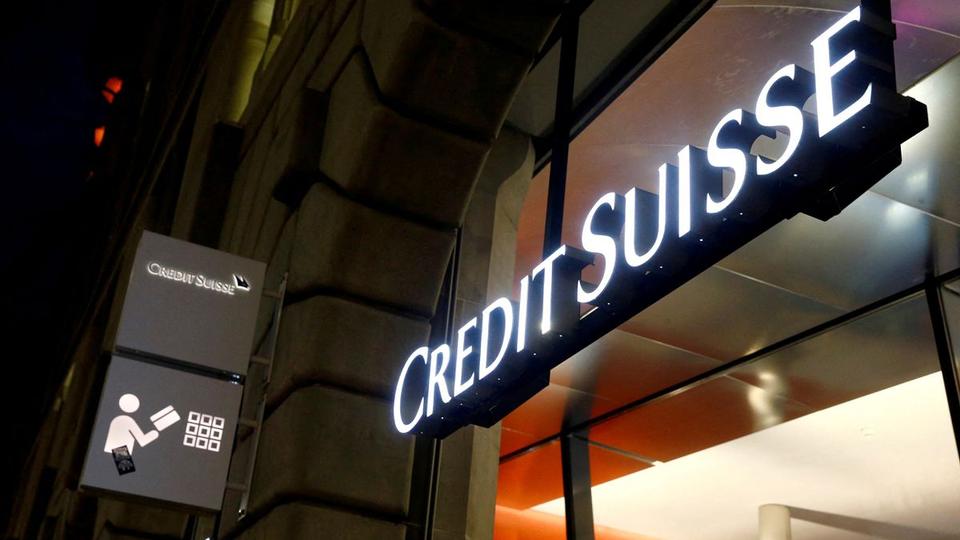Bank rejects allegations of holding tens of billions of dollars of ill-gotten wealth following insider’s leak of records of some 18,000 account holders mainly from developing countries in Africa, Middle East, Asia and South America.
Credit Suisse bank, still reeling from losing billions of dollars last year, handled billions of dollars of dirty money for decades, an international investigation has alleged.
A cross-border media investigation broke on Sunday claiming that Switzerland’s second-largest bank had held tens of billions of dollars of ill-gotten funds, claims based on an insider’s massive data leak.
Credit Suisse rejected the “allegations and insinuations” in a statement, saying that many of the issues raised were historical, some dating back as far as the 1940s.
The investigation, coordinated by the Organised Crime and Corruption Reporting Project (OCCRP), unites 47 different media outlets worldwide including France’s Le Monde and The Guardian in Britain.
This latest project, dubbed “SwissLeaks” by the OCCRP, arose out of a leak of data to Germany’s Suddeutsche Zeitung newspapers a little over a year ago.
Le Monde newspaper said the investigation showed that Credit Suisse had flouted international banking rules by holding funds linked to crime and corruption over several decades.
READ MORE: EU slaps heavy fines on Barclays, Credit Suisse, HSBC and NatWest
‘Tendentious interpretations’
The leak included information on more than 18,000 bank accounts dating back to the 1940s and up to the 2010s belonging to 37,000 individuals or companies, said the OCCRP.
It was the largest leak ever from a major Swiss bank, it added.
The bank, in its statement, said: “Credit Suisse strongly rejects the allegations and insinuations about the bank’s purported business practices.
“The matters presented are predominantly historical, in some cases dating back as far as the 1940s, and the accounts of these matters are based on partial, inaccurate, or selective information taken out of context, resulting in tendentious interpretations of the bank’s business conduct.”
About 90 percent of the accounts reviewed were closed –– or were in the process of being closed –– before the press approached bank, it added. And more than 60 percent of them had been closed before 2015.
‘Dubious characters’
The OCCRP, in a statement on its website, said: “We believe the dozens of examples we have cited raise serious questions about Credit Suisse’s effectiveness and commitment to meeting its responsibilities.”
It said the investigation had found dozens of “dubious characters” in the data.
The sums identified in the leaked accounts amount to more than $100 billion, said Le Monde.
They involve mainly developing countries in Africa, the Middle East, Asia and South America. Only one percent of the accounts concerned clients based in western Europe.
Series of setbacks
The international investigation is the latest in a series of setbacks that Credit Suisse has suffered recently.
In March 2021, the bank was hit by the collapse of Greensill Capital in which it had committed some $10 billion dollars through four funds. The implosion of the US fund Archegos cost it more than $5 billion.
And in Switzerland, a former Credit Suisse employee is among the defendants in a major corruption trial that has just started involving alleged money laundering and organised crime in Bulgaria. The bank has said it will “defend itself vigorously in court”.
News media involved in the SwissLeaks investigation include The New York Times, Italy’s La Stampa, Africa Uncensored in Kenya and Argentina’s La Nacion.
READ MORE: Credit Suisse executive quits after snooping on ex-manager
Source: TRT

 News7 days ago
News7 days ago
 News6 days ago
News6 days ago
 News7 days ago
News7 days ago
 News7 days ago
News7 days ago
 News6 days ago
News6 days ago
 News1 day ago
News1 day ago
 World2 days ago
World2 days ago
 Business6 days ago
Business6 days ago

















